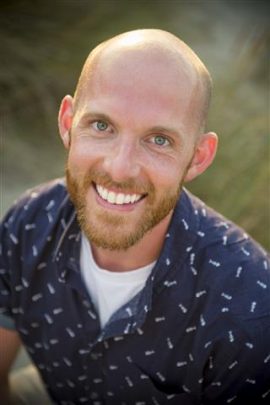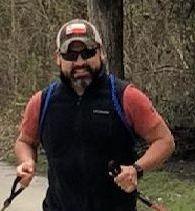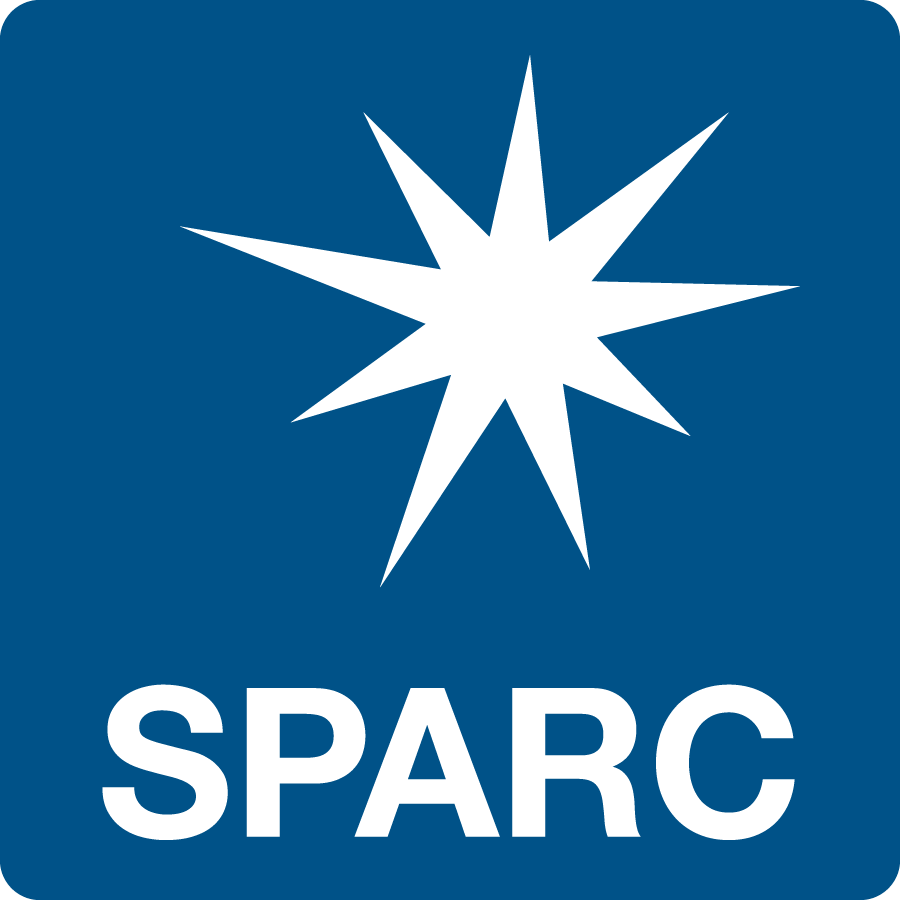Congratulations to Jarrett Henderson, First Place SPARC Winner, and Primo Arredondo, Runner Up! Read their awesome essays below:
 Jarrett Henderson, OT (have photo)
Jarrett Henderson, OT (have photo)
Grad Date May 2020, University of Utah, Salt Lake City, UT
While contemplating the “SPARC” program, I started thinking about the origination and culmination of a spark. A high energy source initiates a spark. They can produce a light that can be seen by many, but it also can ignite a flame that can burn bright, providing light, warmth, and means to perform tasks of everyday living. As a future Occupational Therapy (OT) provider, I want to be that energy needed to spark clients to overcome barriers and ignite the fire within to achieve their rehabilitation goals.
When thinking about how I can become this energy source, I realized much of my school experience has already prepared me. If you had the opportunity to sit in my OT classes, you would see my hand regularly raised. I would be asking questions about theories, evaluations, treatments, and current evidence for OT practice. My consistent inquiry for clarification has not only helped me academically but has inspired my work in research, as noted on this application. Whether it is in a classroom, doing research, or with a client, I like to know the “whys.” Wanting to know about the “Whys” helps me better understand and utilize client factors to develop more efficient interventions that will result in better outcomes. For example, when you ask why someone is experiencing paralysis, you get the information needed to select the appropriate evidence-based treatment. If the “why” was not addressed, someone could mistakenly use the theory of motor control to guide the treatment of a peripheral nerve injury. Doing so would lead to disappointment and unmet goals. This kind of defeat is something that cannot be afforded by patients or therapy specialists. I want to help avoid this defeat by continuing to ask the whys in my practice and push a little deeper to help come up with answers to the “hows.” How can this be fixed? How can we do better? How can therapy be more efficient? Below are some of the ways I plan to contribute to this movement.
CONTINUAL LEARNING:
Through fieldwork, I have developed the understanding that education is not only in a classroom, but opportunities to learn are everywhere. Becoming a valuable therapist means I will use patient homes, clinics, and other work environments to continue to develop an understanding of individuals, groups, and the community’s needs. Allowing the world to be my classroom will allow me to cater my skilled therapy services in any setting.
BEING A TEAM PLAYER:
As is commonly stated, Rome wasn’t built in a day, nor was it made by one person. Significant accomplishments are a result of the combined effort of many. During my second year of OT school, I found value in an interdisciplinary approach while participating in the Hotspotting program. This program identified individuals in a specific geographical area that utilized healthcare services more than normal. Once a patient was detected, we created targeted interventions that addressed all client factors with the goal of better health, well-being and reduced healthcare costs. Team members included OTs, SLPs, NPs, RNs, and other health professions; by collaborating with these clinicians, we developed more effective and efficient client-centered interventions that resulted in quantifiable positive outcomes. As I reflect on those outcomes, I have started to interact more with other health professionals. I have come to the belief that I must be an active interdisciplinary team member if I hope to create dynamic approaches to patient care.
ADVOCACY:
I have seen the value therapy brings to rehabilitation and general well-being. Unfortunately, this value is not always recognized, resulting in policy changes that decrease coverage for therapy services like OT. These changes affect patient outcomes and increase medical charges due to such things as hospital readmission. As a future OT practitioner, I will stay current on evidence-based practice and advocate when legislative action is needed. My documentation of patient outcomes will support the need for skilled therapy service and ensure patients’ well-being.
SEARCH OUT NEW TECHNOLOGY:
In the last few years, I have seen the development of 3D printing, AI, biometrics, and now NASA just announced the creation of a supersonic aircraft. Growth with technology is constant. If complacent with incorporating it, rehab treatments will quickly become outdated, resulting in decreased return on client performance and satisfaction. Decreased performance is not why I decided to become an OT. To prevent this, I will be actively engaged in learning about new technology through conferences, expos, and other continuing education courses.
While attending the 2018 and 2019 annual American Occupational Therapy Association conference, I learned about new technology. I had conversations with OTs about how client needs could be met with such technology. By continuing to search out and learn about new technology, I will provide the needed resources to spark change in patients’ lives. These actions are all a part of my drafted professional development plan. I plan to continue to add to this list so I can produce the needed energy to create that “SPARC” and ignite positive change in my patients and future team members. As an upcoming OT, I look forward to creating evidence-based resources, and toolkits, that will support therapy practitioners and patients with a way to reach their goals. If chosen for this award, I would be honored by your support in helping me work towards excellence as an OT, allowing me to continue to provide the needed “SPARC” in our field.
Primo Arredondo, PTA 
Grad Date: December 2020, Navarro College, Midlothian, TX
My motivation to attend college is to attain the skills necessary to help improve a person’s quality of life. I graduated from Texas Woman’s University with a Bachelor of Science degree and a major in Kinesiology. My plans were to continue with school and earn a master’s degree to become a Physical Therapist. However, after graduating college, I held a job as a Cardiac Tech at a Cardiopulmonary Rehabilitation Center in Lewisville, TX. Shortly after that, I was fortunate enough to land a job at Lake Village Nursing and Rehabilitation Center as a Rehabilitation Technician.
Becoming a Physical Therapist was no longer in my plans, but rather to become a Physical Therapy Assistant. By becoming a Physical Therapist Assistant, I will be able to advocate for the elderly as well as positively influence their quality of living. I can only imagine how self-rewarding it might be to actually execute your knowledge and skills to improve a patient’s well-being! My passion for learning will ensure that I will stay up to date on new therapy interventions that are most beneficial to my patient population. Also, by acquiring continued education to enhance my professional competence, I will demonstrate accountability as a therapy professional. Only by keeping up with updated literature, current technology, and innovative therapeutic methods will I see the best outcomes in my patients’ rehabilitation.
As I notice changes within Medicare, there are a lot of opportunities for changes in regards to therapy interventions. As group therapy becomes a very resourceful tool in providing therapy interventions, I would expand therapy gyms to better accommodate therapy treatment sessions. It would be high dollars invested; but therapists, the facility, and above all, our patients, will ultimately benefit from this investment. Current literature shows that group therapy increases participation, decreases depression, increases patient motivation, gives patients a sense of inclusion, and improves overall rehab potential and experience.
Evidence-based practice is one of the most fundamental elements that makes a therapist an exceptional clinician. EBP allows a therapist to distinguish from effective therapy interventions and non-effective interventions and implement the most effective to acquire the greatest outcome in therapy rehabilitation. My daily routine will consist of incorporating evidence-based practice to every one of my patient’s cases in order to find the most effective intervention to attain the greatest rehab outcomes. My co-workers’ expertise is also a valuable resource to use to improve patient rehab outcomes. While I grow as a clinician, I look forward to attaining valuable expertise and sharing it with co-workers and patients.

